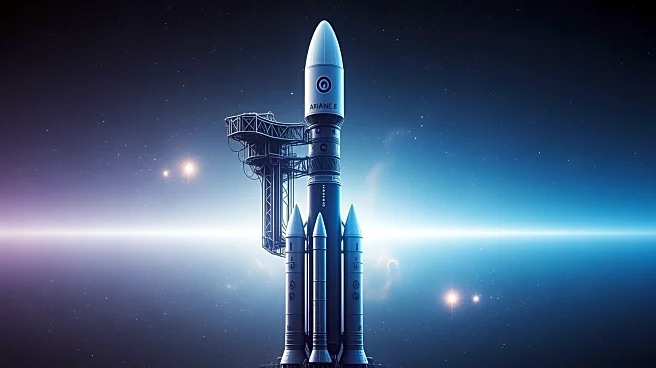What's Happening?
The European Space Agency (ESA) has confirmed the high quality of the Ariane 6 medium-to-heavy-lift launcher's design, as evidenced by recent flight data. Josef Aschbacher, ESA's director general, highlighted
the importance of this development in restoring Europe's sovereign access to space. The period between 2022 and 2024 saw Europe facing significant challenges in launching satellites due to the retirement of Ariane 5, delays in Ariane 6, failures of Vega and Vega C, and the termination of partnerships with Russia following the Ukraine invasion. Despite a slower than planned launch cadence, Ariane 6 has demonstrated satisfactory performance and reliability, contrasting with SpaceX's trial-and-error approach. The launcher has shown high accuracy in orbital injection, reducing the need for satellite fuel consumption to correct orbits.
Why It's Important?
The successful performance of Ariane 6 is crucial for Europe's space ambitions, providing a reliable and independent means to launch satellites. This development is significant for European industries and governments relying on satellite data for various applications, including Earth observation and telecommunications. The restoration of sovereign access to space strengthens Europe's strategic autonomy and reduces dependency on foreign launch services. The high accuracy and reliability of Ariane 6 also enhance the competitiveness of European space technology in the global market, potentially attracting more international clients and collaborations.
What's Next?
Arianespace has scheduled the next Ariane 6 flight for November 4, aiming to launch the European Commission's Sentinel-1D Earth-observation satellite. The company plans to complete four launches by the end of 2025, despite initially planning for six. The ramp-up of Ariane 6 launches is expected to continue, with a target cadence of nine launches per year by 2027. This increase in launch frequency will further solidify Europe's position in the space industry and support its long-term space exploration and satellite deployment goals.
Beyond the Headlines
The successful deployment of Ariane 6 could have broader implications for international space cooperation and competition. As Europe strengthens its launch capabilities, it may seek to expand partnerships with other space-faring nations, potentially influencing global space policy and collaboration frameworks. Additionally, the reliability of Ariane 6 could drive innovation in satellite technology, encouraging advancements in fuel efficiency and orbital mechanics.










